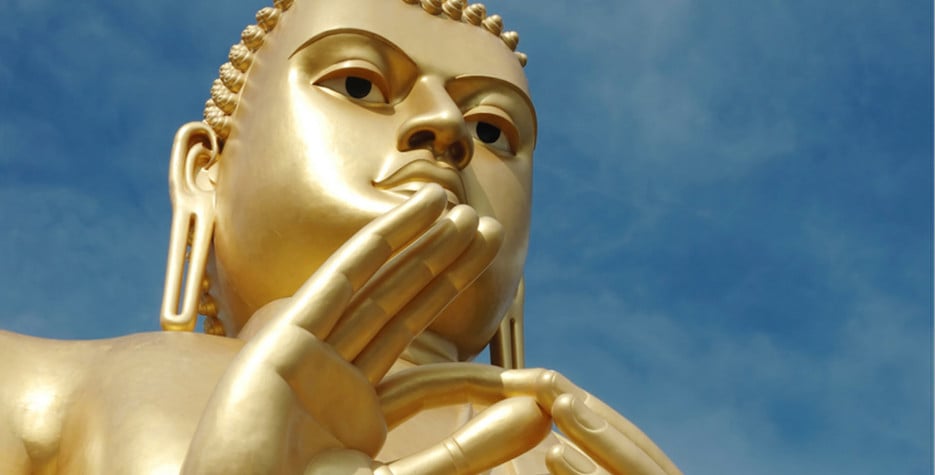When is Duruthu Full Moon Poya?
Duruthu Full Moon Poya is marked with a public holiday in Sri Lanka.
This poya day is celebrated on the first full moon in January and marks the first visit of the Buddha to Sri Lanka.
History of Duruthu Poya
This is a key religious and historic date in the calendar for Sri Lankans as it marks Gautama Buddha's first visit to Sri Lanka on the ninth month after attaining Enlightenment.
The Buddha first visited Mahiyanganaya in the Uva Province of Sri Lanka about 2,500 years ago. According to the ancient texts of Sri Lanka, the Mahavansa and Dipavansa, the Buddha visited to bring an end to fighting between the two main tribes on the island.
During his visit, the Buddha delivered sermons to the tribes. After listening to the sermons, the tribes gave up fighting with each other and started to respect each other with dignity.
Impressed by the sermons, the local God Sumana Saman invited the Buddha to leave his sacred footprint on the peak of the Samanala Mountain. Duruthu poya marks the beginning of the three-month pilgrimage season to Samanala Mountain in order to worship the footprint of the Buddha.
The impression of the footprint is sacred to other religions. In the Hindu tradition, it thought to be the footprint of Shiva and some Christians think it is the footprint of Adam, which is why the mountain is also called 'Adam's Peak'.
The poya is also celebrated with a spectacular procession (perahera) at the Raja Maha Vihara, a Buddhist temple in Kelaniya, about seven miles from Colombo. Taking place on the pre-full moon poya day and attracting thousands of spectators, the perahera involves dancers and animals and can take over two hours to pass by. In some years, there are two full moons in January. In such years (2018 was the most recent example), the second full moon poya is known as Adhi (Sinhalese: half) Duruthu Poya and this will be the date of the perahera.
What are Poya?
Every full moon (usually one a month) is a public holiday in Sri Lanka. Each of the full moons has its own name and they are days to commemorate key events in Buddhism.
These full moon days are known as Poya. The Poya dates will change each year and certain Poya dates may be a day before or after the date of the full moon.
On Poya days, shops and businesses will usually close and the sale of alcohol and meat is forbidden.


